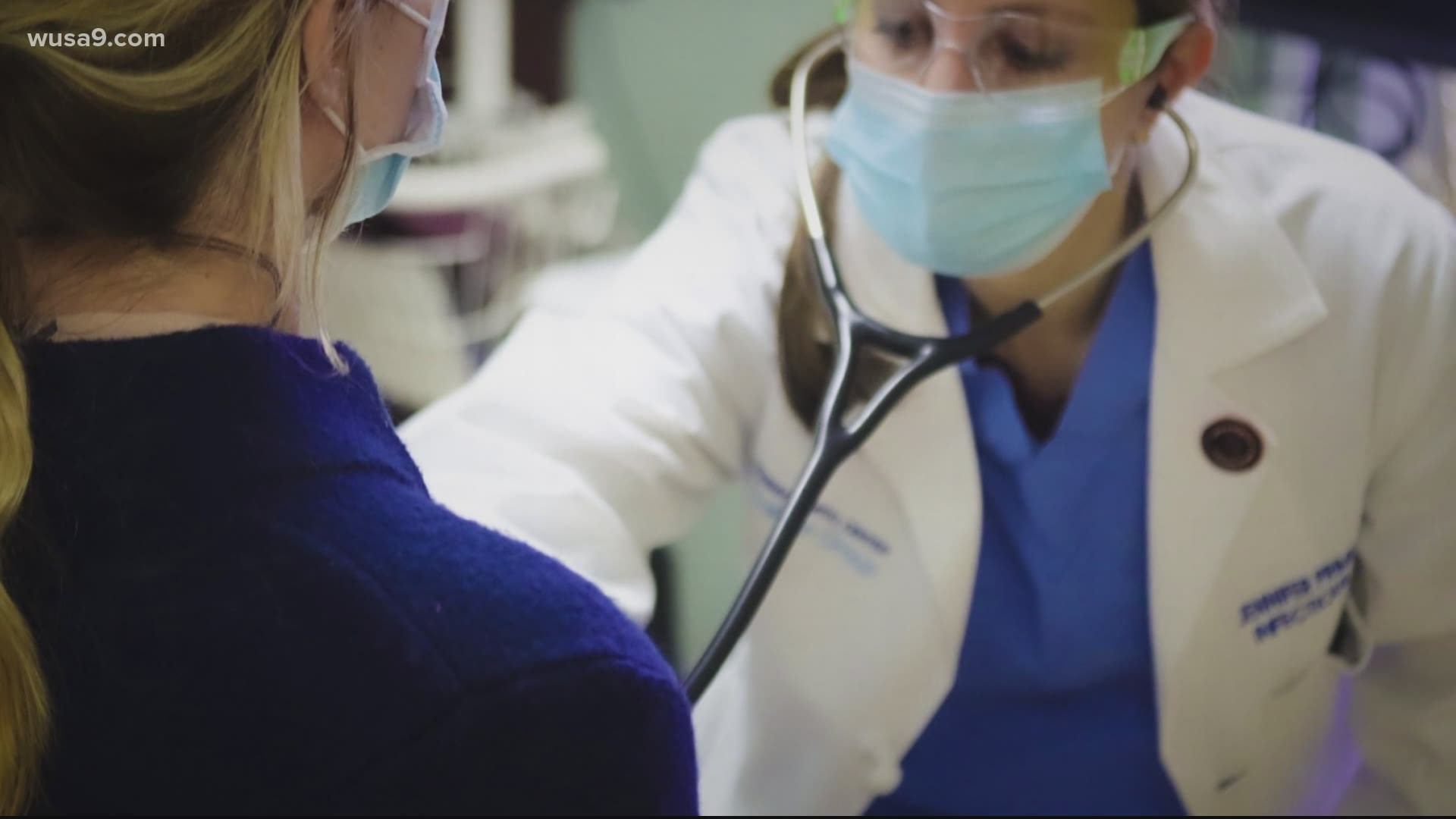WASHINGTON — The COVID-19 vaccines have a number of side effects that are expected to follow the shots. One of those, swollen lymph nodes, has become a cause for concern for some radiologists.
That's led to some headlines and social media posts claiming that you should wait to get a mammogram until several weeks after getting your COVID-19 vaccine.
QUESTION:
Should you plan a breast exam around your COVID-19 vaccine?
SOURCES:
- Dr. Lisa Mullen, Assistant Professor of Radiology at Johns Hopkins University
- Dr. LaTasha Perkins, Physician and Professor at Georgetown University
- The Society of Breast Imaging.
ANSWER:
Yes. The vaccines can cause swollen lymph nodes in some people. When your radiologist sees a swollen lymph node during a mammogram, that can be a cause for concern and warrants a follow-up exam. Experts are trying to avoid false positives and unnecessary anxiety.
They suggest either scheduling your mammogram before your vaccine, or 4 to 6 weeks afterwards.
PROCESS:
Your lymph nodes are like a home for your white blood cells. When those cells are working to fight off an infection, it can sometimes cause the nodes to enlarge. That's what happens to some people after receiving vaccines, according to Dr. LaTasha Perkins.
"You see it a lot and when you're being vaccinated for a virus like the flu or COVID-19, but you also can see it when you get vaccinated for HPV or a tetanus shot," she said. "The swollen lymph nodes are not a cause for concern, because it shows that your body is mounting an immune response. That's exactly what we want it to do when you get a vaccination."
Radiologist Dr. Lisa Mullen says that is also what happens when your body is fighting off something more nefarious, like cancer. Benign flare-ups can make her job of identifying breast cancer much more difficult.
"When we started seeing patients who had had the COVID vaccine," she says, "We were noticing that they had larger than usual lymph nodes on the side where they had been vaccinated."
But before she knew if a patient had been vaccinated, this looked like a cause for concern — one which requires recalls, follow-up exams and possibly biopsies.
"When we're doing a screening mammogram, we're looking for breast cancer. And sometimes breast cancer can present just as a swollen lymph node. But sometimes the swollen lymph node could be related to something else," Dr. Mullen says.
Dr. Mullen and her colleagues started taking note of this trend of recently vaccinated patients returning mammogram results that would usually be a cause for concern.
In response, the Society of Breast Imaging published guidelines for scheduling mammograms in a way that avoids these potential false positives.
Among a number of advisories for providers, they recommend that "If possible, and when it does not unduly delay care, consider scheduling screening exams prior to the first dose of a COVID-19 vaccination or 4-6 weeks following the second dose of a COVID-19 vaccination."
"The COVID vaccine does cause a very prominent immune response. And that's what makes the lymph nodes larger, and that's totally normal," Dr. Mullen says. "What we don't necessarily want is to cause the patient to have extra anxiety or have to be recalled for this reason."
So we can Verify that in order to avoid the possibility of a false positive, experts advise scheduling a breast exam before you receive the COVID-19 vaccine or several weeks afterward.


